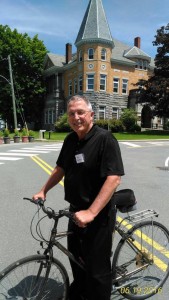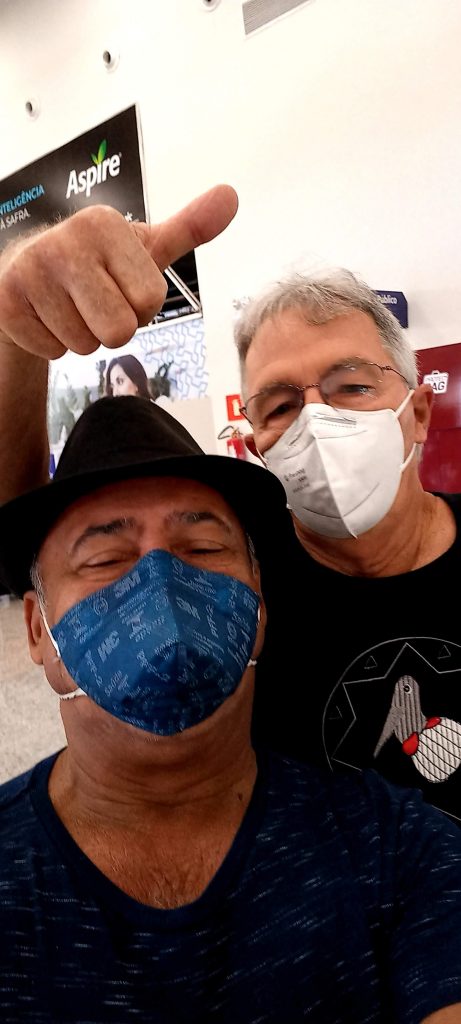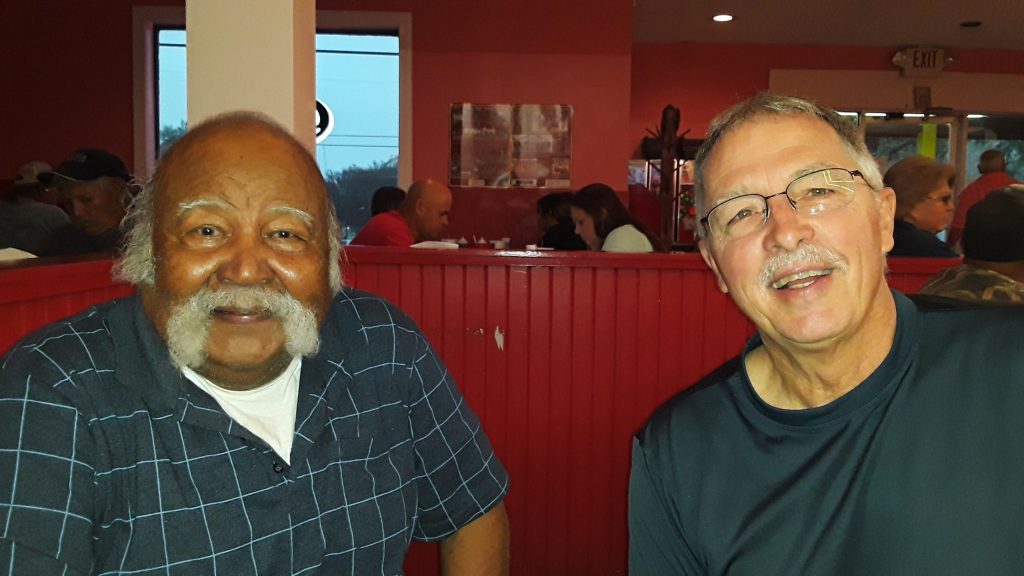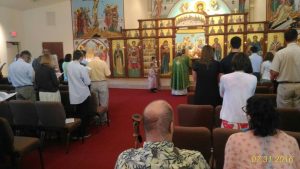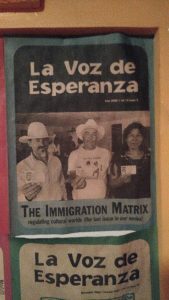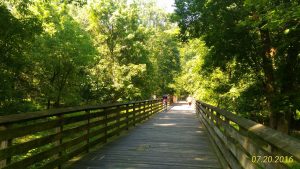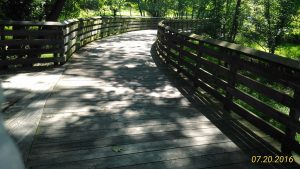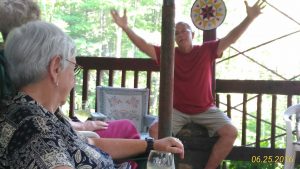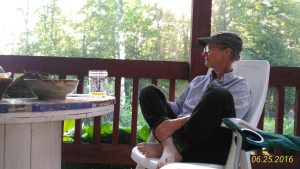Tentative Draft of a Summary Report/Photos After My 2400+ Mile Bicycle Ride for Awareness About Regenerating and Conserving Sustainable Community:

PabloEco3500KRide. Report After Arrival Back Home in Texas from My Recent 2400+ mile Bicycle Trip for Sustainability. (PLEASE GIVE ME A FEW SECONDS AND SCAN OVER ALL OF THIS! PLEEEASE!! THANKS, PABLO]
https://goo.gl/photos/S8A7gAr2vq52NYa47
During the remaining months this year and in 2017, I do plan to make some additional trips to College Station, Houston, Austin, San Antonio, and Devine, TX associated with this bicycle trip to investigate awareness about “sustainability”. (My concept of sustainable community is one which is socially just, humane, and ecologically sound. I believe I have come up with a more effective way to illustrate this with all of its complexities. Down these lines and in an effort to more effectively articulate and communicate sustainability, in future meetings with individuals and groups I will ask participants to illustrate for me their concept of the current state of the earth as well as their concept of a sustainable world.)
Sustainability does mean many different things to different people and depends on temporal and spatial context, and definition of quality life. Most of my immediate family will fare well perhaps for a couple of generations into the future, mostly because of the power they have from socio-economic and geopolitical status and education. However, for the near and more distant future I have less hope for many of the poor, disenfranchised, and relatively powerless, and for many other species, because of loss of topsoil, reduction in quality water and air, loss of effectively photosynthesizing communities, and global climate change.
I was hoping that our Ogallala Commons intern would be able to provide more detailed information on people involved in regeneration and conservation of resilient, sustainable community through the blog website, paulpeaceparables.com. However, this OC internship did not work out for her, and in the near future I will be discussing with Ogallala Commons how we might most effectively use the financial resources which remain in order to further our efforts toward sustainable community.
What I Learned from Community and Sustainability Specialist Engagements, the Actual Travel, and Reflections:
1. Even an old body like mine–with several health challenges–is an incredible piece of life. It was able to get up each morning and on major travel days average over 50 (range of 35-80) miles a day, including 12 straight days toward the end of the trip. Moreover, it appreciated the people, wildlife and landscape encountered during the 2,451 miles traveled by bicycle from northern Vermont; to western MA, mid-eastern New York State, northern NJ, eastern PA, DE, MD, WV, VA, NC, SC, GA, eastern panhandle of FL, AL, MS, LA, and to home in Texas. (Some additional miles were traveled by train, bus, subway, and car.)
Four billion years of evolution produced some fantastic creatures. (And I do believe that almost anyone could do what I did these past 3 months.)
2. The bicycle is an amazing piece of appropriate technology! For all sorts of individual and community health reasons, we need to replace automobiles with bicycles, walking, and intelligently-planned mass transport which mesh well with bicycling and walking.
Bicycles are being quite widely and holistically used in a pragmatic/utilitarian way toward sustainable community in Montreal & New York City. (Moreover, a sustainable engineering program at James Madison University in Harrisonburg, VA has a class in which old bicycle parts are used to build quality-of-life enhancing bicycles for the physically-challenged.) In other areas the bicycle is less effectively used and is mostly for recreation and individual health rather than efficiently for ecological community health.
3. There are many very inherently good and caring people in the world in various socio-economic situations with varying political persuasions, many of whom were very interested in improving quality of life for all, including other species, here on Eaarth. (Eaarth is the term ecological journalist and activist Bill McKibben used for the new earth which the anthropocene, the age of human dominance, has produced.)
4. Nevertheless, most of these good people are fairly comfortable with status quo and continuing to do bad things ecologically* with their habits of conspicuous consumption of over 200,000 kilocalories per capita day. And even if this consumption is labeled “renewable”, Green, organic, or permaculture, … increasing “artificialization” does negatively impact “Nature”.
People generally are working on efficiency rather than sufficiency because of a neoliberal-/conventional capitalistic-/growth-/upwardly mobile-/”gotta buy more stuff”-mindset. Simple, small, and slow, lessening our ecological footprint and living poorly has not captured the fancy of many in the U.S.
Finally, there really is not much real interest in sharing power to rectify disparity and realize more equity.
[*The definition of ecology might be: a humble but robust search for means of ethically and morally understanding appropriate relationships of biota and the physical environment. … It recognizes a fundamental problem with continued “artificialization” of Eaarth, i.e., conversion of Nature to rural agrarian-Land … to much area which is Urban. … Although obviously other temporal and spatial influences have to be studied and considered, ecology mostly focuses on the Earth and daily solar energetics, and the last twenty thousand years or so and some hundreds of years into the future. … Ecologists are generally more “lumpers” than “splitters”. … more holistic, comprehensive, and profound than reductionistic and myopic … more scientists than technologists. … “Heaven” and “hell”/”good” and “evil” can be possible concepts in applied ecology as long as a goal is equitable “good” for all in ecological community, including the poor and disenfranchised and other species on this Earth, and the timeframe is the present & the immediate future, and that real avoidance of War is an inherent part of that goal (Positively Ethical Applied Community Ecology, or PEACE).]
5. “Artificialization” and invasive species & structures are everywhere—humans, automobiles, bermudagrass, bahia grass, loblolly & slash pine, kudzu, Nandina and other ornamentals, red imported fire ants, McMansions, many, many church buildings in the SE, asphalt, cattle & dairies & manure lagoons, big farm and construction equipment, …
Stories Which Could Be Told:
1. Peter Brown, McGill University and his collaborative efforts at making change–toward regenerating sustainable community–within the goals, policy & curricula of the economics and business departments of major universities, etc. https://www.youtube.com/watch?v=Tjfx7diJ-ug
2. Ed and Adrien Helm and family, PEACE and sustainable community activitists and organizers. http://www.oneofakindinc.com/remembering-american-soviet-w…/ https://www.youtube.com/watch?v=ye05C4xygvI
3. Sense of community in the Northeast Kingdom of Vermont, western Massachusetts, Maryland, and Georgia.
4. Dos Pueblos Tipitapa, Nicaragua-NYC Sister City Project.
5. Fred Kirshenmann and his efforts toward a sustainable agriculture.
https://www.leopold.iastate.edu/…/writings-fred-kirschenmann
6. Tom Horton, Economist & Journalist who worked for the Baltimore Sun and is now a freelancer and professor, and who understands energetics and sustainability as few do.
7. Riverkeepers, Chesapeake Bay. http://www.waterkeeperschesapeake.com/
8a. Maryland Green Schools Effort http://maeoe.org/green-schools/
8b. Kathleen Merrigan, Executive Director of Sustainability, George Washington University; former Deputy Secretary of Agriculture; and formerly with Jim Hightower’s Texas Department of Agriculture.
8c. Dynamic governance or sociocracy, “a decision-making and governance method that allows an organization to manage itself as an organic whole.”
9a. The permaculture phenom.
9b. A temperate, semi-tropical edible landscape.
9c. The very big business of trash, waste, and pollution (and recycling), which is (sadly) an important part of our GDP, with a focus on the “Progressive” Corporation … Versus. … an emphasis on the “REDUCE” in the “3 Rs”, sufficiency, Simple/Small/Slow, & the lowering our individual and collective ecological footprints.
10. The beauty and serenity of Rails-to-Trails.
11. The phenomenon of community gardens.
12. Polyface Farm and planned controlled grazing with multi-species.
13a. Feeling at home: Latinos across the NE and SE, and Georgia.
13b. Some fairly tough challenges … and empathy with the poor/homeless.
13c. “Gotta get a gun!” (Recommendation from a quasi-north Florida cracker.)
14a. Encounter with a sheriff’s department in rural northeastern Georgia.
14b. Dr. Jim Dutcher, respected pecan entomologist … and Helene Dutcher, biologist and successful public school administrator/education consultant (who sometimes believes “It’s time to earn … not to learn.”)
14c. Dr. Joe Lewis, breakthrough research scientist who worked parasitoid-behavior,
-semiochemicals, & -learning; educator; and elected public servant.
15. Traveling/touring/vacationing sustainably by bicycle.
16. How to stay positive when traveling in a nerve-racking, crazy world of automobiles.
paul
